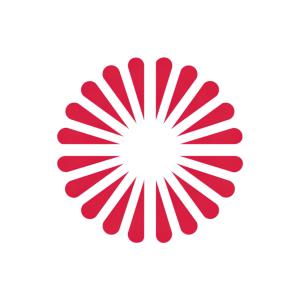CENTOGENE Data on Novel Genetic Risk Factor for Parkinson’s Disease in The Lancet Neurology
Rhea-AI Summary
CENTOGENE has published data from its Rostock International Parkinson's Disease (ROPAD) Study in The Lancet Neurology, supporting the association of a RAB32 gene mutation with Parkinson's disease (PD). The study analyzed Whole Genome Sequencing data from 3,354 PD patients, revealing that nine patients (0.3% of the cohort) carried the RAB32 c.213C>G mutation. This prevalence is significantly higher than the 0.002% found in general population databases.
Key findings include:
- The mutation's causal role in Parkinson's disease is supported
- Age at onset did not differ between mutation-positives and negatives
- Gender proportions and certain clinical characteristics differed
- The RAB32 Ser71Arg-associated haplotype supports a single founder mutational event
CENTOGENE has launched a ROPAD Consortium to continue driving PD research and treatment through collaborative efforts, aiming to streamline access to critical data and improve the potential for advancing treatment options.
Positive
- Identification of RAB32 gene mutation as a significant risk factor for Parkinson's disease
- 0.3% of the ROPAD cohort carried the RAB32 c.213C>G mutation, compared to 0.002% in general population
- Launch of ROPAD Consortium to drive further Parkinson's disease research and treatment advancements
- Collaboration with over 100 study sites globally for Parkinson's patient diagnosis and treatment options
Negative
- None.
Insights
The publication of CENTOGENE's ROPAD study data in The Lancet Neurology represents a significant advancement in understanding the genetic basis of Parkinson's disease (PD). The study's findings, which corroborate and expand upon previous research, highlight the RAB32 gene mutation as a novel and important risk factor for PD.
Key points of impact:
- The RAB32 c.213C>G mutation was found in
0.3% of the 3,354 PD patients studied, which is over 100 times higher than its prevalence in the general population. - This data strongly supports the causal role of the RAB32 mutation in PD, potentially opening new avenues for targeted therapies and genetic screening.
- The study's large scale and international scope (including patients from multiple countries) enhances its reliability and applicability.
For investors, this research positions CENTOGENE as a leader in PD genetics research, potentially increasing its value in the rare and neurodegenerative disease space. The launch of the ROPAD Consortium further solidifies CENTOGENE's commitment to advancing PD research and treatment, which could lead to valuable partnerships and intellectual property in the future.
The identification of RAB32 as a significant genetic risk factor for Parkinson's disease (PD) is a breakthrough that could reshape our approach to diagnosis and treatment. This study's findings are particularly impactful because:
- It confirms and expands on previous research, strengthening the evidence for RAB32's role in PD pathogenesis.
- The high prevalence of the mutation in PD patients compared to the general population suggests it could be a major contributor to PD risk.
- Understanding the genetic basis of PD can lead to more personalized treatment approaches and potentially new drug targets.
The consistency of the haplotype associated with the RAB32 Ser71Arg mutation across studies points to a single founder event, which is intriguing from an evolutionary perspective and may help in understanding the mutation's spread and impact.
For the biotech industry, this discovery opens up new possibilities for developing gene-targeted therapies and diagnostic tools. Companies involved in neurogenetics and PD research may find this data invaluable for their R&D pipelines.
- Rostock International Parkinson's Disease (ROPAD) Study demonstrates a significant link between the RAB32 gene variant and Parkinson's disease, further supporting recent findings
- Data from over subcohort of 3,350 patients shows that the RAB32 mutation is over 100 times more prevalent in Parkinson's patients than in the general population
CAMBRIDGE, Mass. and ROSTOCK, Germany and BERLIN, Sept. 25, 2024 (GLOBE NEWSWIRE) -- Centogene N.V., the essential life science partner for data-driven answers in rare and neurodegenerative diseases, today announced data from the Company’s Rostock International Parkinson's Disease (ROPAD), further supporting the association of a RAB32 gene mutation with Parkinson's disease (PD). The study, published in The Lancet Neurology, builds on research from Emil K. Gustavsson and colleagues, who previously identified the RAB32 c.213C>G (p.Ser71Arg; dbSNP rs200251693) variant as a novel monogenic cause of PD.
In the ROPAD Study, Whole Genome Sequencing (WGS) data from 3,354 PD patients revealed that nine patients from Germany, Italy, Spain, and Türkiye carried the RAB32 c.213C>G mutation. This proportion of variant-positives —
"Over the past five years, CENTOGENE, alongside over 100 study sites globally, have partnered to diagnose Parkinson's patients and advance treatment options," said Prof. Peter Bauer, Chief Medical and Genomic Officer at CENTOGENE. “Building on the initial insights from Gustavsson and colleagues, we were able to dive into our ROPAD cohort to develop a deeper understanding of RAB32 c.213C>G as a cause for Parkinson’s and shed light on the way to a potential cure. These types of game-changing insights are what we are striving for every day.”
Key Findings:
- Nine ROPAD participants (
0.3% of the cohort) were heterozygous for the RAB32 c.213C>G mutation, supporting the mutation's causal role in Parkinson’s disease - Age at onset in mutation-positives and mutation-negatives did not differ, while gender proportions and certain clinical characteristics did
- The RAB32 Ser71Arg-associated haplotype was as in the Gustavsson et al. study, supportive of a single founder mutational event
These findings underscore the importance of RAB32 as an important cause of Parkinson's disease.
“Our collaborative efforts have highlighted the critical impact of genetics on Parkinson’s disease and emphasize the importance of incorporating genetic testing into the standard care of these patients,” said Christian Beetz, Senior Director Genomic Innovation at CENTOGENE. “This will not only open doors to potential treatments, but also expedite and mitigate risks in the development of gene-targeted therapies – shaping the future of Parkinson’s care.”
“The study results are a perfect reflection of the significance of data and collaboration in establishing a deep disease understanding,” adds Krishna Kumar Kandaswamy, Vice President of R&D Bioinformatics at CENTOGENE. “By assembling the world's largest genetic Parkinson’s disease cohort, we have gained unprecedented insights that will fuel further research, clinical development, and ultimately, improved patient outcomes.”
The Company recently launched a ROPAD Consortium to continue driving PD research and treatment through collaborative efforts. The ROPAD Consortium will build on the vast network of neurologists, existing partnerships with non-profit organizations, and the largest genetic testing program for PD patients worldwide to streamline access to critical data, drive impactful research, and improve the potential for advancing treatment options. To find out more, email: contact.pharma@centogene.com
About ROPAD
The Rostock International Parkinson's Disease (ROPAD) Study is a global epidemiological study focusing on the role of genetics in Parkinson’s disease (PD). The major goal of the study is to characterize the genetics of PD to establish a better understanding of the disease etiology, diagnosis, and severity.
CENTOGENE utilizes CentoCard®, the Company’s proprietary, CE-marked Dried Blood Spot (DBS) collection kit in combination with state-of-the-art sequencing technologies to screen for mutations in all known PD-associated genes. To date, over 18,000 participants from around the world have been tested over a five-year period.
About CENTOGENE
CENTOGENE’s mission is to provide data-driven, life-changing answers to patients, physicians, and pharma companies for rare and neurodegenerative diseases. We integrate multiomic technologies with the CENTOGENE Biodatabank – providing dimensional analysis to guide the next generation of precision medicine. Our unique approach enables rapid and reliable diagnosis for patients, supports a more precise physician understanding of disease states, and accelerates and de-risks targeted pharma drug discovery, development, and commercialization.
Since our founding in 2006, CENTOGENE has been offering rapid and reliable diagnosis – building a network of approximately 30,000 active physicians. Our ISO, CAP, and CLIA certified multiomic reference laboratories in Germany utilize Phenomic, Genomic, Transcriptomic, Epigenomic, Proteomic, and Metabolomic datasets. This data is captured in our CENTOGENE Biodatabank, with over 850,000 patients represented from over 120 highly diverse countries, over
By translating our data and expertise into tangible insights, we have supported over 50 collaborations with pharma partners. Together, we accelerate and de-risk drug discovery, development, and commercialization in target and drug screening, clinical development, market access and expansion, as well as offering CENTOGENE Biodata Licenses and Insight Reports to enable a world healed of all rare and neurodegenerative diseases.
To discover more about our products, pipeline, and patient-driven purpose, visit www.centogene.com and follow us on LinkedIn.
Contacts:
Melissa Hall
CENTOGENE
Corporate Communications
Press@centogene.com
Lennart Streibel
CENTOGENE
Investor Relations
IR@centogene.com








